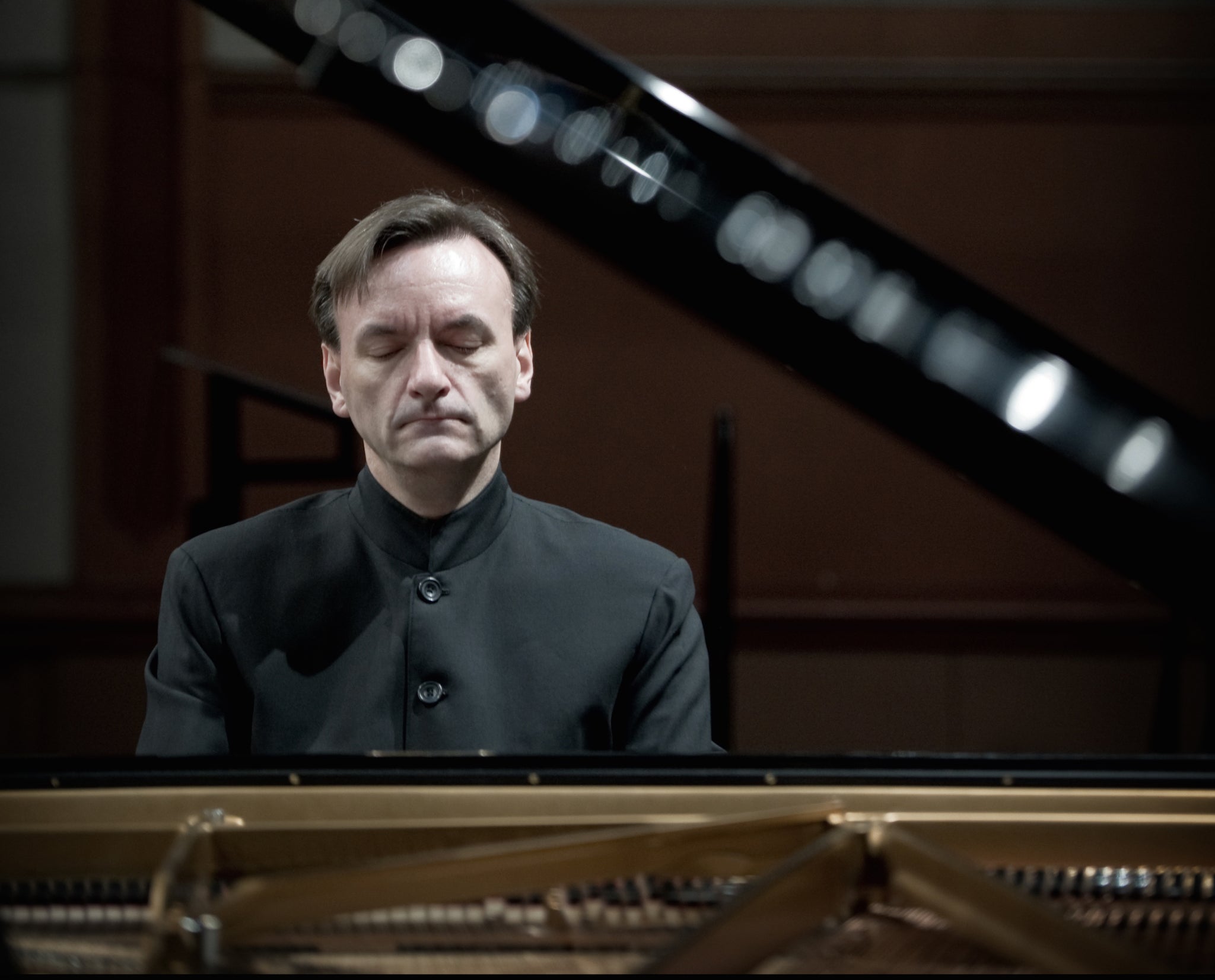Classical reviews: Chopin, Busoni and Schubert
Stephen Hough performs piano works on the theme of death, while Irish pianist Barry Douglas continues his Schubert series with a splendid fifth volume

Vida Breve
Stephen Hough, piano
Hyperion CDA68260
★ ★ ★ ★★
As Britain’s elder-statesman pianist, Stephen Hough has always thought outside the box, making unexpected juxtapositions, exhuming forgotten treasures, and interlarding things with compositions of his own. This CD offers a tour d’horizon of works on the theme of death, but there’s nothing morbid about it. Chopin’s “funeral march” sonata is of course present, but so also are some works we seldom hear. Most people know Busoni’s majestic transcription of the Chaconne from Bach’s Partita No 2 in D minor, which Hough invests with a wonderful monumentality, but I had not heard Busoni’s Kammer-Fantasie über Carmen to which Hough brings a fizzing exuberance.
If Liszt’s Funérailles, with its pervasive use of the tritone – the “Devil’s interval” – has a grimly sinister atmosphere, his Bagatelle sans tonalité comes over as mysteriously today as it must have done when premiered in 1885. An enigmatic piece by Hough gives the CD its title, and his arrangement of a Korean song gives things a pleasingly oriental twist. As Hough observes, death is the final piece on everyone’s recital programme: his encore here is a dreamy rendering of Gounod’s meditation on the first Prelude in Bach’s 48, which brings us the Ave Maria we got to know courtesy of the young Charlotte Church. With Hough, it’s needless to add that the pianism is immaculate throughout.
Schubert: Works for Piano Vol 5
Barry Douglas, piano
Chandos CHAN 20157
★ ★ ★ ★★
The redoubtable Irish pianist Barry Douglas continues his Schubert series with a splendid fifth volume containing two much-loved classics and two relative rarities. Liszt adored Schubert’s songs, and here we get two of his arrangements, played with irresistible charm: Liebesbotschaft and Ständchen. We also get fine renderings of two sonatas – the monumental D 784, which the composer did not live to play or even hear, and the turbulent D850. A grippingly authoritative record.



Join our commenting forum
Join thought-provoking conversations, follow other Independent readers and see their replies
Comments